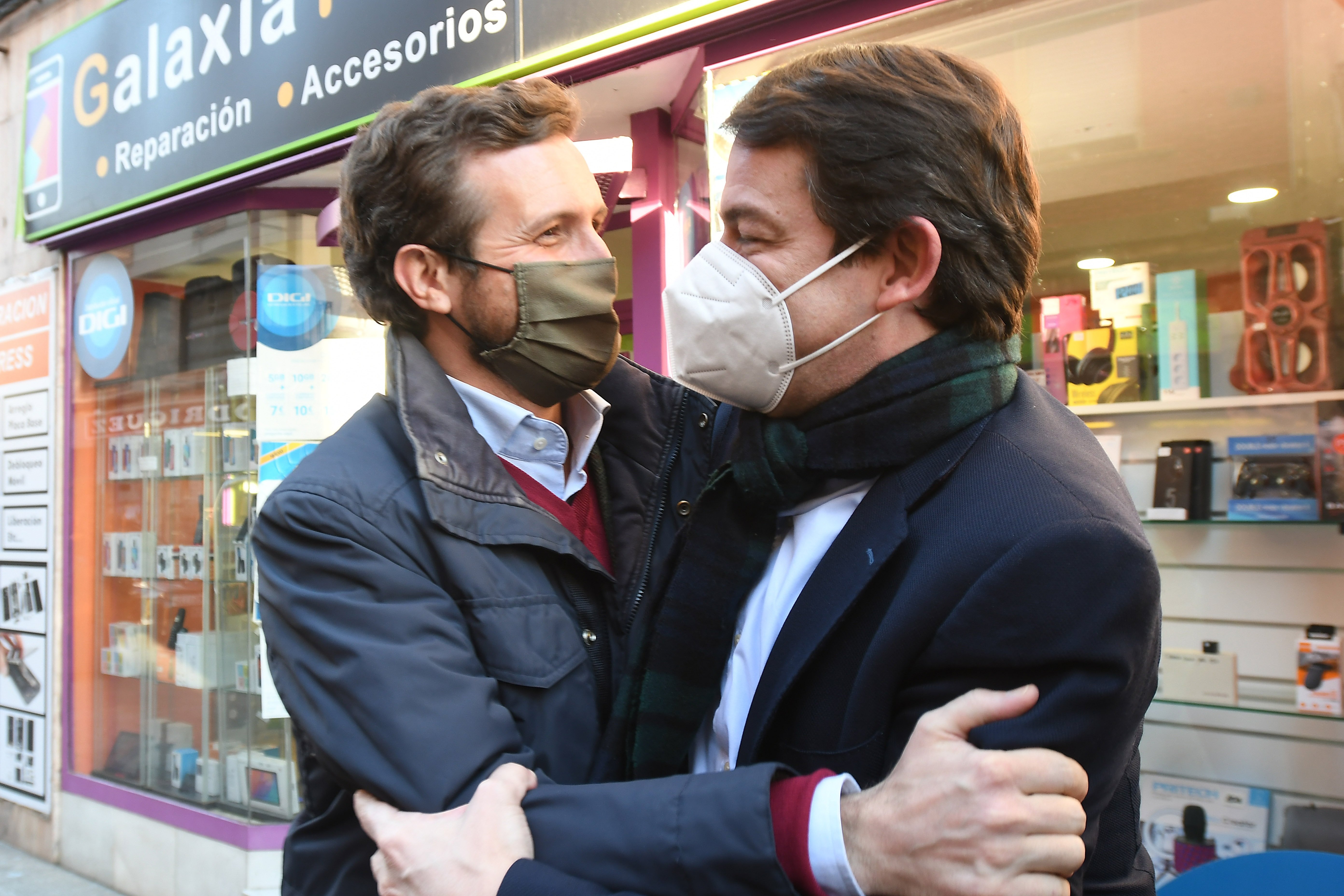The plan came through, but not quite as PP headquarters would have liked. Alfonso Fernández Mañueco, current president of Spain's largest region Castilla y León, managed to win the elections for his Popular Party candidacy on Sunday, leaving the opposition Socialists (PSOE) without any options for an alternative majority. But the victory comes at a price: the party has fallen far short of an absolute majority, and has been tied hand and foot - in yet another part of Spain - by the far-right party Vox. The regional PP leader's first move has been to resist this fate, and last night he announced a round of contacts with all parties, starting with the PSOE. But Vox leader Santiago Abascal also warned: "Vox has the right and duty to form a government." In the background, other electoral movements that also follow in the wake of similar trends elsewhere in Spain: Ciudadanos almost disappears from the Parliament of yet another autonomous community, while the rural "depopulation" platform España Vaciada and provincial parties surge.
At 8pm on Sunday night, when voting closed and election day poll results were released, the PP were already overflowing with euphoria. At the Calle Génova headquarters in Madrid they were calling the PSOE "the big loser" in the elections, because it had slipped to second place in the electoral horse race and had failed to win in any of the nine provinces of this vast north-western Spanish autonomous community. "The citizens of Castilla y León have understood the reasons for calling [early] elections and have punished the two parties that promoted the no-confidence motion, Ciudadanos and the PSOE," said party sources, congratulating themselves on "maintaining government," taking for granted an alliance with the extreme right.
On the other hand, the PSOE called for caution and to wait until all the votes were in. However, Spanish prime minister and PSOE secretary general Pedro Sánchez chose to stay at his official residence and not make the trip to travel to the party headquarters. He did well: as the night went on, only the good omens of the PP were confirmed.
Detailed election results, here.
There was no surprise in terms of the fight between the big two: the PP won a fairly tight election, overtaking the PSOE to win 31 seats. This is two more than in the 2019 elections, when they were second. The Socialists have lost a lot of momentum, taking seven fewer seats than the 35 they obtained in 2019. But the podium was completed by the far right of Vox, who have made spectacular advances, from a single seat in the autonomous parliament to 13. Unidas Podemos had a poor result, halving their representation from two, to just one regional MP. However, this paled into significance compared to the crash of Ciudadanos, replicating the same plunge they have suffered in election after election since 2019, and here, going from being part of the regional government with 12 seats, to a lone representative in Valladolid. In fact, as in the Community of Madrid last year, it is the rapid decline of Cs' electoral prospects in regions where they shared power that was the ultimate reason behind the early calling of elections that were due in 2023.
As expected, the minor parties in the electoral fight have grown, but the power of influence they hoped has proved elusive. The "Leonesists" of the León People's Union, who advocate separation of their historical important region from the territorial monster of Castile, have risen from one to three MPs, the second time they have hit this high. Meanwhile, the platform centred on issues of rural depopulation, España Vaciada - "Emptied Spain" - has burst into the chamber with three deputies, all three from the province of Soria. Another regional candidacy, Por Ávila, retained the single seat it already had.
The absolute majority in the parliament in Valladolid is 41 seats. Thus, the only viable pact is that of Fernández Mañueco's PP with that of Vox's far right, which is already advising that it intends to flex its muscles. The two parties would yield 44 MPs. On the other hand, the PSOE has no option for entering power. The PP's Alfonso Fernández Mañueco, has already announced a round of contacts with all groups, starting with the PSOE, while Santiago Abascal has warned that Vox will use their strength.
Thus, as happened last year in the Community of Madrid, the future of the PP is again tied to Vox. This fact also has repercussions at Spain-wide level, with a Pablo Casado in hock to the far right, who will demand to hold office within the institutions. The view that Isabel Díaz Ayuso set out in the Castilla y León election campaign has won the day: "If we have to make a deal with another party, I would prefer Ortega Lara to those who make deals with his kidnappers", in reference to the Basque party EH Bildu.

